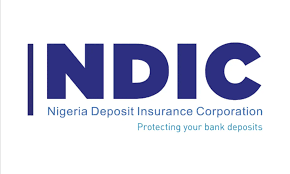The Nigeria Deposit Insurance Corporation (NDIC) has called on financial sector players, regulators, and members of the public to contribute their views on the ongoing review of the Core Principles for Effective Deposit Insurance Systems.
This call was made in a statement issued on Tuesday by the Head of Communication and Public Affairs at NDIC, Mrs Hawwau Gambo. The request follows a recent global initiative launched in May 2025 by the International Association of Deposit Insurers (IADI) to revise its core standards.
The NDIC said the review is a response to major changes taking place in the global financial system, including digital innovations and new roles being assigned to deposit insurers in managing banking crises.
IADI, founded in 2002, is the global body that develops standards and best practices for deposit insurance systems. It helps countries build more effective frameworks by providing guidance, monitoring the implementation of standards, and analysing data on bank failures and deposit insurance. The NDIC is one of IADI’s founding members and a major contributor to its activities.
According to the NDIC, the latest review of IADI’s Core Principles is focused on major developments, especially lessons from the banking crisis of March 2023 — the worst banking disruption since the global financial meltdown of 2007–2009.
The statement reads, “Specifically, the revision is aimed at comprehensively addressing structural changes, including digital innovation, the growing role of deposit insurers in resolution, and lessons learnt from the banking turmoil in March 2023, which is the most significant systemic stress event since the 2007-09 global financial crisis.”
The Core Principles guide how countries design and operate their deposit insurance schemes. They are also used to assess the strength of a country’s financial safety net. In Nigeria, they serve as a benchmark for evaluating the quality and adequacy of the deposit insurance system.
Beyond Nigeria, the International Monetary Fund (IMF) and the World Bank also use the IADI Core Principles to evaluate member countries’ deposit insurance systems under the Financial Sector Assessment Programme (FSAP). Through this programme, both global financial institutions assess the stability and soundness of banking sectors around the world.
The original set of Core Principles was jointly developed by IADI and the Basel Committee on Banking Supervision in June 2009. Since then, the document has undergone several revisions to keep pace with global financial system trends, including the increasing role of technology and the growth of complex banking services.
In light of this, NDIC is urging Nigerian stakeholders — including banks, fintech companies, policymakers, researchers, and the general public — to share feedback that can inform Nigeria’s position during the review process.
The NDIC said its own mandate remains the protection of depositors’ funds through supervision of banks and other deposit-taking financial institutions. It also plays a critical role in ensuring that banks are safe and sound, which indirectly protects creditors and shareholders.
As financial services become more digital and interconnected, NDIC noted that it is crucial for countries like Nigeria to remain aligned with global best practices in managing deposit insurance systems. Stakeholder feedback, it said, is important to identify practical challenges and ensure that any policy adopted fits the local financial environment.
Experts say Nigeria’s participation in the IADI review process will help strengthen the safety of the banking system, improve crisis management tools, and give the NDIC better frameworks to protect depositors in the event of future bank failures.
The NDIC has not specified a deadline for submitting feedback but encouraged early contributions through appropriate industry channels. Updates on the process will be provided as the global revision exercise progresses.
